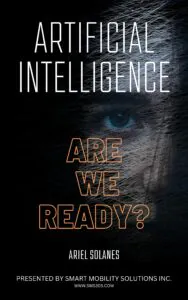 The Impact of Artificial Intelligence on the Job Market
The Impact of Artificial Intelligence on the Job Market
Artificial Intelligence (AI) has become an increasingly prevalent topic in recent years, with its impact being felt across various industries. One area where AI has had a significant impact is the job market. As AI technology continues to advance, it is reshaping the way we work and the types of jobs available. In this article, we will explore the impact of AI on the job market and discuss the potential implications for workers.
One of the most significant effects of AI on the job market is automation. AI-powered machines and software are increasingly being used to perform tasks that were previously done by humans. This automation has the potential to replace jobs in various sectors, from manufacturing to customer service. For example, self-checkout machines in supermarkets have replaced the need for human cashiers, and chatbots are now commonly used to handle customer inquiries online.
While automation may lead to job losses in some areas, it also creates new opportunities. As AI takes over repetitive and mundane tasks, workers can focus on more complex and creative work. This shift in job roles requires workers to adapt and acquire new skills. For instance, instead of manually entering data, workers may need to learn how to analyze and interpret the data generated by AI systems. Therefore, there is a growing demand for workers with skills in data analysis, programming, and AI development.
Furthermore, AI has the potential to create entirely new job roles that were previously unimaginable. As AI technology advances, there is a need for professionals who can develop and maintain AI systems. This includes roles such as AI engineers, data scientists, and machine learning specialists. These jobs require a deep understanding of AI algorithms and programming languages, making them highly specialized and in-demand.
However, the impact of AI on the job market is not limited to automation and the creation of new roles. It also affects the nature of work itself. With AI systems becoming more sophisticated, they are increasingly capable of performing complex tasks that were traditionally done by humans. This raises questions about the future of certain professions. For example, AI-powered legal research tools can now analyze vast amounts of legal data, potentially reducing the need for human lawyers in certain areas.
Moreover, AI has the potential to improve productivity and efficiency in the workplace. AI systems can analyze large datasets and identify patterns and trends that humans may miss. This can lead to better decision-making and more effective resource allocation. As a result, businesses can become more competitive and efficient, which can have a positive impact on job creation.
In conclusion, the impact of AI on the job market is significant and multifaceted. While automation may lead to job losses in some areas, it also creates new opportunities and job roles. Workers need to adapt and acquire new skills to remain relevant in an AI-driven world. Additionally, AI has the potential to transform the nature of work itself and improve productivity in the workplace. As AI technology continues to advance, it is crucial for individuals and organizations to embrace the changes and prepare for the future of work.
Ethical Considerations in Artificial Intelligence Development
Artificial Intelligence (AI) has become an integral part of our lives, revolutionizing various industries and transforming the way we live and work. However, as AI continues to advance, it is crucial to consider the ethical implications that come with its development. Ethical considerations in AI development are essential to ensure that this powerful technology is used responsibly and for the benefit of humanity.
One of the primary ethical concerns in AI development is the potential for bias. AI systems are trained using vast amounts of data, and if this data is biased, it can lead to discriminatory outcomes. For example, if an AI system is trained on data that is predominantly from a specific demographic, it may not accurately represent the needs and experiences of other groups. This can result in biased decisions and perpetuate existing inequalities. To address this concern, developers must ensure that the training data used is diverse and representative of the population.
Another ethical consideration is the impact of AI on employment. As AI technology advances, there is a fear that it will replace human workers, leading to widespread job loss. While it is true that AI can automate certain tasks, it is important to remember that it also has the potential to create new job opportunities. By automating repetitive and mundane tasks, AI can free up human workers to focus on more complex and creative work. However, it is crucial to ensure that the transition is managed effectively, with retraining programs and support for those whose jobs are at risk.
Privacy is another significant ethical concern in AI development. AI systems often rely on collecting and analyzing vast amounts of personal data to make informed decisions. This raises concerns about the security and privacy of individuals’ information. Developers must prioritize data protection and implement robust security measures to safeguard sensitive data. Additionally, transparency and consent should be central to AI systems, ensuring that individuals have control over their data and understand how it is being used.
The potential for AI to be used for malicious purposes is also a pressing ethical consideration. AI can be weaponized and used to carry out cyberattacks, spread misinformation, or manipulate public opinion. To prevent this, developers must prioritize building AI systems with strong security measures and implement regulations to prevent misuse. Collaboration between governments, organizations, and researchers is crucial to establish ethical guidelines and frameworks to govern the development and use of AI.
Furthermore, accountability and transparency are essential in AI development. As AI systems become more complex and autonomous, it becomes challenging to understand how they arrive at their decisions. This lack of transparency raises concerns about accountability and the potential for AI systems to make biased or unfair decisions without human oversight. Developers must strive to create AI systems that are explainable and accountable, ensuring that humans can understand and challenge the decisions made by AI.
In conclusion, ethical considerations in AI development are of utmost importance to ensure that this powerful technology is used responsibly and for the benefit of society. Addressing concerns such as bias, employment, privacy, malicious use, and accountability is crucial to build trust in AI systems. By prioritizing diversity, transparency, and data protection, developers can create AI systems that are fair, secure, and aligned with human values. It is through responsible development and ethical decision-making that we can harness the full potential of AI while minimizing its risks.
How Artificial Intelligence is Revolutionizing Healthcare
Artificial Intelligence (AI) has become a buzzword in recent years, with its potential to revolutionize various industries. One area where AI is making significant strides is healthcare. The integration of AI into healthcare systems has the potential to transform the way we diagnose, treat, and manage diseases. In this article, we will explore how AI is revolutionizing healthcare and the impact it is having on patients and healthcare professionals alike.
One of the key ways AI is revolutionizing healthcare is through its ability to analyze vast amounts of medical data. With the advent of electronic health records and the digitization of medical records, there is an abundance of data available for analysis. AI algorithms can sift through this data, identifying patterns and trends that may not be immediately apparent to human healthcare professionals. This can lead to more accurate diagnoses and personalized treatment plans for patients.
AI is also being used to develop predictive models that can help identify patients at risk of developing certain diseases. By analyzing a patient’s medical history, lifestyle factors, and genetic information, AI algorithms can identify individuals who may be at a higher risk of developing conditions such as diabetes or heart disease. This early identification allows healthcare professionals to intervene and implement preventive measures, potentially saving lives and reducing healthcare costs in the long run.
In addition to diagnosis and prediction, AI is also being used to improve the efficiency of healthcare systems. AI-powered chatbots and virtual assistants are being used to triage patients, providing them with initial assessments and directing them to the appropriate level of care. This not only reduces the burden on healthcare professionals but also ensures that patients receive timely and appropriate care.
AI is also being used to streamline administrative tasks in healthcare settings. From scheduling appointments to managing billing and insurance claims, AI-powered systems can automate these processes, freeing up healthcare professionals to focus on patient care. This not only improves efficiency but also reduces the likelihood of errors and improves the overall patient experience.
Another area where AI is revolutionizing healthcare is in the field of medical imaging. AI algorithms can analyze medical images such as X-rays, CT scans, and MRIs, identifying abnormalities and assisting radiologists in making more accurate diagnoses. This can lead to earlier detection of diseases such as cancer, improving patient outcomes and potentially reducing the need for invasive procedures.
Despite the numerous benefits of AI in healthcare, there are also challenges that need to be addressed. One of the main concerns is the ethical use of AI in healthcare. Issues such as patient privacy, data security, and algorithm bias need to be carefully considered and addressed to ensure that AI is used in a responsible and equitable manner.
In conclusion, AI is revolutionizing healthcare in numerous ways. From analyzing medical data to predicting disease risk, improving efficiency, and enhancing medical imaging, AI has the potential to transform the way we deliver and receive healthcare. However, it is important to address the ethical considerations associated with AI to ensure that it is used responsibly and for the benefit of all patients. As AI continues to evolve, it will be fascinating to see how it further shapes the future of healthcare.
Exploring the Future of Artificial Intelligence in Education
Artificial Intelligence (AI) has become an integral part of our lives, revolutionizing various industries. One area where AI is making significant strides is education. As technology continues to advance, the future of AI in education holds immense potential. In this article, we will explore the various ways AI is transforming education and the benefits it brings.
One of the key areas where AI is making a difference in education is personalized learning. Traditional classrooms often struggle to cater to the individual needs of each student. However, with AI, personalized learning becomes a reality. AI algorithms can analyze vast amounts of data to understand each student’s strengths, weaknesses, and learning style. This enables educators to tailor their teaching methods and materials to suit each student’s unique requirements, ensuring optimal learning outcomes.
Moreover, AI-powered virtual tutors are becoming increasingly popular. These virtual tutors can provide personalized guidance and support to students, helping them navigate through complex subjects. These tutors are available 24/7, allowing students to learn at their own pace and receive immediate feedback. This not only enhances the learning experience but also helps students build confidence and improve their academic performance.
Another area where AI is transforming education is in the field of assessment. Traditional exams and assessments often fail to capture a student’s true abilities and potential. However, AI-powered assessment tools can provide a more accurate and comprehensive evaluation. These tools can analyze a student’s performance across various parameters, such as critical thinking, problem-solving, and creativity. By providing a holistic assessment, AI helps educators identify areas where students need additional support and tailor their teaching accordingly.
Furthermore, AI is revolutionizing the way educational content is created and delivered. With AI, educators can develop interactive and engaging learning materials that cater to different learning styles. AI algorithms can analyze vast amounts of data to identify patterns and trends, enabling educators to create content that is both informative and captivating. Additionally, AI-powered platforms can deliver this content in a personalized manner, ensuring that each student receives the information they need in a format that suits them best.
AI also has the potential to bridge the gap between formal education and real-world applications. By incorporating AI into the curriculum, students can gain hands-on experience with cutting-edge technologies. This prepares them for the future job market, where AI is expected to play a significant role. Moreover, AI can provide students with real-time feedback and guidance, helping them develop critical skills such as problem-solving, collaboration, and adaptability.
While the future of AI in education is promising, it is important to address potential challenges and concerns. Privacy and data security are crucial considerations when implementing AI in education. It is essential to ensure that student data is protected and used responsibly. Additionally, there is a need for ongoing professional development to equip educators with the necessary skills to effectively integrate AI into their teaching practices.
In conclusion, the future of AI in education is bright. From personalized learning to virtual tutors, AI is transforming the way we learn and teach. By harnessing the power of AI, educators can provide tailored instruction, enhance assessment methods, and create engaging learning materials. Moreover, AI prepares students for the future by bridging the gap between formal education and real-world applications. However, it is important to address concerns such as privacy and data security while providing educators with the necessary training. With careful implementation, AI has the potential to revolutionize education and empower students to reach their full potential.
Artificial Intelligence in the Gaming Industry
Artificial Intelligence (AI) has become an integral part of various industries, revolutionizing the way we live and work. One sector that has greatly benefited from AI is the gaming industry. With advancements in technology, AI has transformed the gaming experience, making it more immersive, challenging, and realistic.
One of the key areas where AI has made a significant impact is in game development. Traditionally, game developers had to manually create every aspect of a game, from character movements to enemy behavior. This process was time-consuming and limited the complexity of games. However, with AI, developers can now create intelligent virtual characters that can learn and adapt to different situations.
AI-powered game characters are capable of making decisions based on their environment and the actions of the player. They can analyze the player’s behavior, predict their next move, and respond accordingly. This not only enhances the gameplay but also provides a more dynamic and engaging experience for the player. AI-driven characters can also learn from their mistakes, improving their performance over time.
Moreover, AI has revolutionized the concept of non-player characters (NPCs) in games. NPCs are computer-controlled characters that interact with the player. In the past, NPCs were often predictable and lacked depth. However, AI has changed that. NPCs can now exhibit human-like behavior, making the game world feel more alive and realistic. They can have their own goals, emotions, and personalities, which adds depth and complexity to the gaming experience.
Another area where AI has made a significant impact is in game design. AI algorithms can analyze vast amounts of data, such as player preferences and behavior, to generate personalized game content. This means that each player can have a unique gaming experience tailored to their preferences. AI can also generate procedural content, such as maps, levels, and quests, which ensures that games have endless possibilities and remain fresh and exciting.
Furthermore, AI has greatly improved the graphics and visual effects in games. AI algorithms can analyze and process large amounts of data to create realistic and detailed graphics. This includes realistic physics simulations, lifelike animations, and advanced lighting effects. As a result, games are more visually stunning and immersive than ever before.
AI has also revolutionized the way games are tested and debugged. Traditionally, game testing was a time-consuming and labor-intensive process. However, AI-powered testing tools can now automatically test games, identify bugs, and provide feedback to developers. This not only saves time and resources but also ensures that games are of high quality and free from glitches.
AI has transformed the gaming industry in numerous ways. From creating intelligent virtual characters to generating personalized game content, AI has made games more immersive, challenging, and realistic. It has revolutionized game development, design, graphics, and testing. As technology continues to advance, we can expect AI to further enhance the gaming experience, pushing the boundaries of what is possible in the virtual world.




